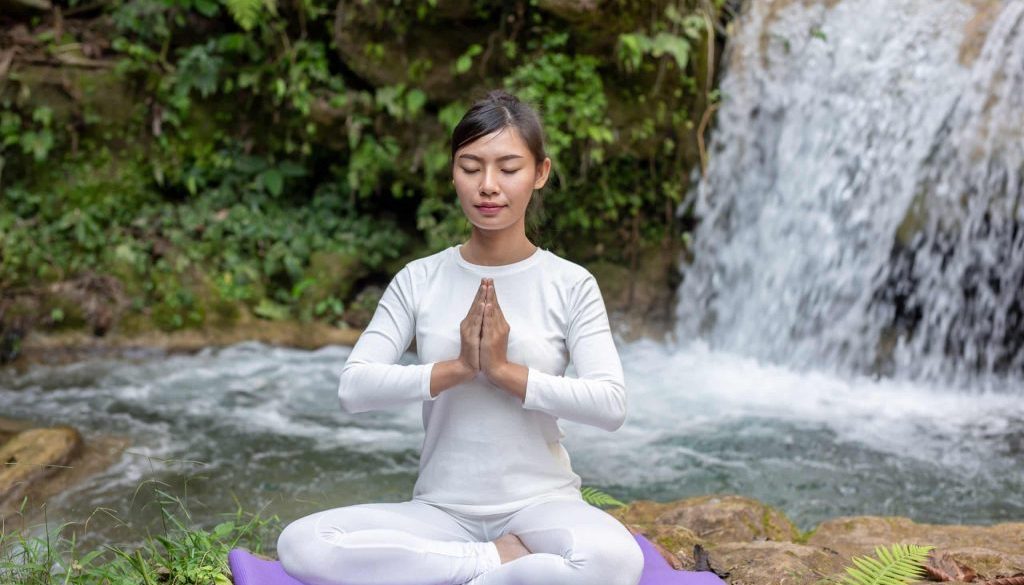Introduction to Mindfulness and Relaxation
Mindfulness and relaxation are powerful tools for enhancing mental well-being. They bridge the gap between inner peace and our hectic daily lives. At their core, mindfulness emphasizes awareness of the present moment, while relaxation serves as a vital remedy to the toll stress takes on our bodies. Together, they offer individuals a pathway to achieve mental clarity and emotional balance.
Understanding Mental Well-Being
Mental well-being is not just the absence of mental illness; it is a state where our emotional, psychological, and social health thrives. Our daily experiences, relationships, and coping mechanisms play a significant role in shaping mental resilience. When mindfulness and relaxation are integrated into our lives, they help us achieve and maintain this balance, which is crucial for overall happiness.
The Science Behind Mindfulness and Relaxation
Over the years, scientists have explored the impact of mindfulness and relaxation on the brain and body. Research shows that these practices reduce cortisol levels, the hormone linked to stress. Additionally, mindfulness has been shown to enhance neuroplasticity, enabling the brain to form new, healthier connections. Relaxation, on the other hand, activates the parasympathetic nervous system, helping our bodies recover from stress and return to a state of calm. Neuroscientists have also observed that mindfulness positively affects areas of the brain linked to concentration and empathy, fostering better mental health outcomes.
Practical Mindfulness Techniques
Mindfulness doesn’t require hours of meditation or specialized tools. Small steps pave the way for big changes. Practices like mindful breathing, body scans, and gratitude journaling can be performed almost anywhere. Regular mindfulness exercises promote awareness and self-regulation, leading to a calmer mind. Start small — even spending five minutes a day practicing mindfulness can yield noticeable benefits.
Incorporating Relaxation into Daily Life
Relaxation is more than the occasional bubble bath or vacation—it’s about creating regular moments of peace. Incorporating activities like yoga, progressive muscle relaxation, or even listening to soothing music can profoundly change your day. Building relaxation into your schedule not only helps you decompress but also enhances productivity and mental clarity when returning to tasks.
Benefits of Mindfulness and Relaxation on Stress
Stress is a constant companion for many, but mindfulness and relaxation offer a proven defense. By regularly practicing these techniques, individuals experience a reduction in anxiety, lower blood pressure, and improved resilience when facing challenges. The ability to pause, breathe, and reflect allows life’s demands to feel less overwhelming, making stress more manageable.
Mindfulness and Emotional Regulation
Life comes with its ups and downs, but mindfulness equips us to handle emotional flux with grace. Studies have shown that mindfulness can help individuals process and respond to emotions without immediate reactive impulses. By acknowledging feelings without judgment, mindfulness fosters emotional stability, contributing to better relationships and decision-making.
Relaxation Techniques for Improved Sleep
A relaxed mind is a restful mind, making relaxation essential for quality sleep. Engaging in relaxation techniques such as deep breathing exercises or guided imagery before bedtime can ease the mind into a peaceful state. Better sleep not only improves mood but also enhances mental acuity and overall health, as restful nights set the foundation for productive days.
Creating a Mindful Environment
Your surroundings play an integral role in your mental state. By decluttering your space and incorporating elements like natural light, plants, and calming scents, you can create an environment conducive to mindfulness. A mindful environment nurtures calmness and encourages reflection, making it easier to stay focused and present in daily life.
Overcoming Challenges in Practicing Mindfulness
Getting started with mindfulness isn’t always easy—it’s common to feel restless or distracted initially. But overcoming these hurdles begins with consistency and patience. Remember, mindfulness is a skill, and like any skill, it takes time to develop. Setting realistic goals and using tools like guided apps can help establish a sustainable practice.
Real-Life Examples of Mindfulness Success
Mindfulness has transformed lives across the globe. Take, for example, Sarah, who used mindfulness practices to manage chronic anxiety. By dedicating just 10 minutes each morning to mindfulness meditation, she noticed improved focus and reduced stress. Stories like hers are a testament to the tangible benefits mindfulness can bring into everyday life.
Chart: Comparison of Stress Levels Before and After Mindfulness Practice
Below is a visual representation showing the decrease in stress levels reported by individuals who integrated mindfulness practices into their routines for six months.
|
Feature |
Before Mindfulness |
After 6 Months of Mindfulness |
|---|---|---|
|
Stress Level (0-10 scale) |
8.5 |
3.2 |
|
Emotional Reactivity |
High |
Moderate |
|
Quality of Sleep |
Poor |
Good |
|
Cognitive Clarity |
Low |
Improved |
Maintaining a Long-Term Mindfulness Practice
Like any healthy habit, maintaining mindfulness requires ongoing effort. Establishing a routine that incorporates mindfulness practices ensures lasting benefits. Whether through apps, journals, or mindfulness groups, there are abundant resources to support long-term success. Celebrate the small wins, and remember that consistency is key.
Resources for Further Exploration
For those eager to deepen their knowledge, many excellent books, podcasts, and courses on mindfulness and relaxation are available. Titles like “The Miracle of Mindfulness” by Thich Nhat Hanh or apps like Headspace and Calm offer structured guidance and engaging content for beginners and seasoned practitioners alike.
Embracing Mindfulness for a Better Life
Mindfulness and relaxation are not just practices—they are a lifestyle. By incorporating them into your routine, you can create a life of balance, clarity, and fulfillment. Every step, no matter how small, brings you closer to a calmer, happier state of being. Start your mindfulness practice today and unlock a world of mental tranquility.
FAQ
What is mindfulness in simple terms?
Mindfulness is the practice of focusing on the present moment without judgment, helping you gain clarity and reduce stress.
How often should I practice mindfulness?
Even five to ten minutes a day can make a difference, but consistency is key to reaping the benefits.
Can mindfulness help with anxiety?
Yes, mindfulness has been proven to reduce symptoms of anxiety by helping individuals better regulate their emotions.
What are some simple relaxation techniques?
Breathing exercises, listening to calming music, progressive muscle relaxation, and yoga are excellent ways to relax.
https://akperbinalitasudama.ac.id/
https://akfisstlukastomohon.ac.id/
https://akbidjakartamitrasejahtera.ac.id/
https://akperpemkabacehtenggara.ac.id
https://aklpemprovsumsel.ac.id/
https://poltekkessbengkulu.ac.id/
https://akabidartakabanjahe.ac.id/
https://atrowidyadharma.ac.id/
https://akbidhafsyahmedan.ac.id/
https://akbidindahmedan.ac.id/
https://akbiddelhusdelmed.ac.id/
https://akperharapanmamadeliserdang.ac.id/
https://stmiktrigunapati.ac.id/
https://akbidikabinalabuhanbatu.ac.id/
https://akbidbungabangsaaceh.ac.id/




